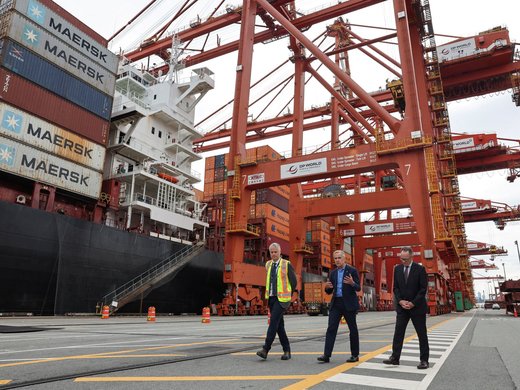In the Republican primary campaign, Jeb Bush warned Donald Trump that he could not insult his way into the White House. Mr. Trump ignored the advice.
Just before leaving the White House, president Barack Obama stated that the most important attribute for a U.S. president was “a thick skin.” This is a trait no one would associate with Mr. Trump. In fact, the erratic, impulsive nature of his tweets in the run-up to the inauguration suggest the opposite. Moreover, the fact that several of his social-media messages were openly contradicted in testimony by his key cabinet appointees is generating confusion, uncertainty and alarm throughout the Western alliance, including in Canada. Tensions have also escalated with China.
Of greatest immediate concern to Canada has been his anti-free-trade ripostes, some of which may be meant more to cajole rather than negotiate compliance. “America First” was the central theme of his inauguration speech. It sounded uncompromising, suggesting that the United States will play by the international rules of trade until it decides unilaterally not to.
Canada should not be directly threatened. Our trade with the United States is in healthy balance. Our two economies are highly integrated and mutually beneficial, but we will need to be vigilant and not succumb to unilateral blandishments. We will have to wait and see what actions follow the protectionist drumbeat while emphasizing to the Americans that any border measures against Canada will also damage U.S. producers and consumers.
Mr. Trump’s stridently negative rhetoric regarding the North Atlantic Treaty Organization, the European Union and German Chancellor Angela Merkel – the United States’ major ally in Europe – contrasts recklessly with his oddly warm sentiments about Russian President Vladimir Putin and could destroy the alliance that has provided stability and security under consistent U.S. stewardship for more than seven decades. While it is fair to criticize laggards such as Canada for failing to meet the 2 per cent of GDP guidelines on NATO defence spending, the alliance has no future without strong, cohesive U.S. leadership.
Nicholas Burns, a former NATO ambassador who served both Democratic and Republican administrations, denounced Mr. Trump’s remarks: “To say that NATO is obsolete, openly support the disintegration of the EU and then denigrate Merkel and put her on a par with Putin is a fundamental break with 70 years of American diplomacy.”
Given the cyberthreat posed by Mr. Putin’s Russia to U.S. democracy and to democracies in Europe, Mr. Trump’s tirades are inimical to his country’s own fundamental security interests. His shoot-from-the-lip pronouncements have shocked important allies and will not be easy to repair. One hopes that key secretaries such as Rex Tillerson (State) and James Mattis (Defence) will bring strategic intellect and maturity to the dialogue.
In a more positive vein, if Mr. Trump can succeed on the domestic front with tax and regulatory reforms that spur economic growth, there will be definite dividends, extending beyond the United States. That momentum may tame some of the anti-trade jibes.
Speedy approval of a presidential permit for Keystone XL will be of particular value to Canada and, if sensibly managed, could be a catalyst for a more constructive, bilateral partnership on other areas of mutual benefit, namely shared infrastructure and joint security arrangements.
Mr. Trump is a showman, a deal-maker and a novel communicator. His immediate challenge will be to move beyond campaign bluster to the reality of governance. To succeed, he will need to forge a tighter consensus among strong cabinet personalities whose views on key issues vary from of his own and with Republican caucus members who see his victory as a hostile takeover of their party. What we and the world would like to see, instead of spasmodic sound bites through social media, is clearer evidence of discipline and judgment that will make him worthy of the office he has assumed.
This article originally appeared in the Globe & Mail


